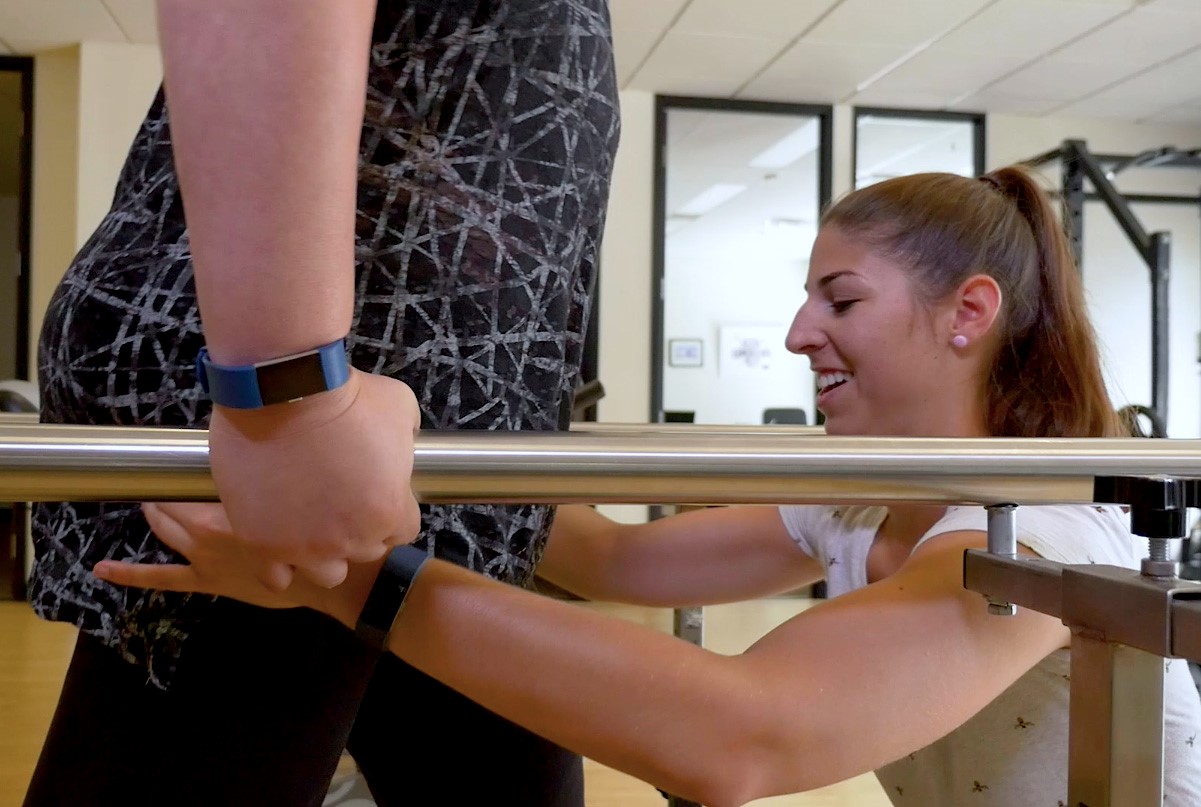Fatigue can impair daily life and lead to negative health outcomes. While exercise can initially lead to fatigue due to the physical exertion involved, regular physical activity can actually help reduce overall fatigue levels and increase energy levels over time.
In a study showing a comprehensive picture of global fatigue prevalence in the general population, 20.4% of adults and 11.7% of minors suffered from general fatigue, while 10.1% of adults and 1.5% of minors suffered from chronic fatigue.[i]
In this article we will explore the ways fatigue can manifest and what can cause it. We also examine how to measure fatigue and ways to manage fatigue with exercise.
Table of Contents:
- What is fatigue?
- Physiological effects of exercise on fatigue
- Indirect effects of exercise on fatigue
- How to manage fatigue with exercise
- Measuring fatigue
- Conclusion
What is Fatigue?
Fatigue refers to a state of feeling tired, exhausted, or lacking energy and motivation. It can be caused by various factors, including physical exertion, mental stress, lack of sleep, poor nutrition, medical conditions, or certain medications.
Fatigue can manifest as both physical and mental tiredness, impacting a person’s ability to perform daily activities efficiently and affecting their overall well-being. Managing fatigue often involves identifying and addressing its underlying causes, such as improving sleep quality, maintaining a balanced diet, managing stress, and seeking medical attention if necessary.
You may also enjoy reading: The Benefits of Regular Exercise
Physiological Effects of Exercise on Fatigue
Exercise has both immediate and long-term effects that can help with fatigue.
- Boosts oxygen circulation in your body: The circulatory system delivers oxygen and nutrients to cells and takes away wastes. With regular exercise your heart and lungs become more efficient. The heart and blood vessels improve their delivery of blood flow and oxygen to the muscles.[ii]
- Spurs your body to produce more mitochondria (powerhouses) in your muscle cells: Mitochondria are structures within cells that generate the energy necessary to power cells. These structures are important in contributing to whole body health and illness. Exercise has been found to increase both the quantity and quality of mitochondria leading to greater muscle health.[iii]
- Endorphin release: The mental health benefits of exercise have a neurochemical basis. Exercise levels reduce the levels of the stress hormones cortisol and adrenaline in the body. These hormones can disrupt the body’s processes and contribute to depression and anxiety.[iv] Exercise also contributes to the release of the endorphins, the body’s own natural painkillers and mood elevators.
You may also enjoy reading: Can Exercise Improve Brain Health
Indirect Effects of Exercise on Fatigue
Exercise also has many indirect effects on the body and mind that can help with fatigue management.
- Improving sleep: Physical activity has consistently been found to improve sleep quality and symptoms of sleep disorders, such as sleep apnea.[v] Sleep is crucial in helping restore the body’s energy. (link – Why Sleep is Critical for Brain Health Blog)
- Improved motivation: Motivation and self-efficacy also improve with regular activity by improving one’s belief in their ability to complete a goal. This helps to improve a person’s ability to manage fatigue and maintain an exercise routine.
- Maintaining a healthy weight: Metabolism is also greatly affected through physical activity by maintaining a healthy weight. Carrying extra weight can lead to strain on many different areas including heart function and muscles and joints.
You may also enjoy reading: Exercises to Prevent Osteoporosis
How to Manage Fatigue with Exercise
The Canadian Physical Activity Guidelines recommend adults between the ages of 18-64 perform a variety of types and intensities of physical activity, which includes:
- Moderate to vigorous aerobic physical activities such that there is an accumulation of at least 150 minutes per week
- Muscle strengthening activities using major muscle groups at least twice a week[vi]
We have put together a list of examples of the types of exercises that can be incorporated into a routine that can help manage fatigue.
Aerobic Exercise (Cardio): Activities that increase your heart rate and breathing, improving cardiovascular health and endurance. Examples include running, walking, cycling, swimming, and dancing.
Strength Training: Exercises aimed at increasing muscle strength, size, and endurance. This includes weightlifting, bodyweight exercises (like push-ups and squats), resistance band workouts, and using weight machines.
Flexibility Exercises: Activities that improve flexibility and range of motion in your joints. Stretching exercises such as yoga, Pilates, and specific stretches targeting various muscle groups fall into this category.
Balance and Stability Exercises: Workouts designed to improve balance, coordination, and stability, reducing the risk of falls and enhancing overall functional movement. Examples include tai chi, certain yoga poses, and specific balance drills.
High-Intensity Interval Training (HIIT): Alternating between short bursts of intense activity and periods of rest or lower-intensity exercise. HIIT workouts can improve cardiovascular fitness, burn calories, and boost metabolism in a shorter amount of time compared to steady-state cardio.
Circuit Training: Involves moving through a series of exercises (stations) with minimal rest in between. This type of workout combines strength training and cardiovascular exercise, offering a comprehensive full-body workout.
Functional Training: Exercises that mimic real-life movements to improve overall strength, stability, and mobility. This type of training focuses on enhancing performance in everyday activities and sports.
You may also enjoy reading: Benefits of Hiring a Personal Trainer
Measuring Fatigue
Fatigue is a subjective experience that can range from feelings of tiredness to complete exhaustion. Fatigue can vary in intensity, severity and frequency. A registered physiotherapist or exercise physiologist will consider and measure fatigue to determine if treatment approaches are effective.
Measures such as the Brief Fatigue Inventory, Fatigue Severity Scale and the Fatigue Impact Scale capture both the subjective experience of fatigue as well as its impact on quality of life. These short and concise measures are both easily understood by patients as well as easy to administer by therapists. These measures can be used as guides to help steer treatment approaches for the most effectives outcomes.
You may also enjoy reading: How to Manage Neurological Fatigue
Conclusion
Fatigue is a multifaceted and complex symptom that affects many areas of a person’s life. It is important to understand that many factors can influence fatigue including activity levels, sleep, stress levels and other medical issues.
At Propel Physiotherapy our team is experienced in addressing many aspects of fatigue including exercise prescription, stress management skills, sleep hygiene education and energy conservation techniques. Our team also works in collaborating and referring to other health care professionals when necessary.
Don’t let fatigue stop you from living your life. Come see us today and find out how we can help.
References
[i] Yoon JH, Park NH, Kang YE, Ahn YC, Lee EJ, Son CG. The demographic features of fatigue in the general population worldwide: a systematic review and meta-analysis. Front Public Health. 2023 Jul 28;11:1192121. doi: 10.3389/fpubh.2023.1192121. PMID: 37575103; PMCID: PMC10416797.
[ii] Physical activity and your heart: Benefits, National Heart, Blood and Lung Institute
[iii] Memme JM, Erlich AT, Phukan G, Hood DA. Exercise and mitochondrial health. The Journal of Physiology doi: 10.1113/JP278853
[iv] Exercising to relax, How does exercise reduce stress? Surprising answers to this question and more.
Harvard Health Publishing, Harvard Medical School
[v] Alnawwar MA, Alraddadi MI, Algethmi RA, Salem GA, Salem MA, Alharbi AA. The Effect of Physical Activity on Sleep Quality and Sleep Disorder: A Systematic Review. Cureus. 2023 Aug 16;15(8):e43595. doi: 10.7759/cureus.43595. PMID: 37719583; PMCID: PMC10503965.
[vi] Canadian 24-Hour Movement Guidelines for Adults aged 18-64 years: An Integration of Physical Activity, Sedentary Behaviour, and Sleep, The Canadian Society for Exercise Physiology (CSEP)
Written by

















